Celebrating IfM females as part of International Women in Engineering Day
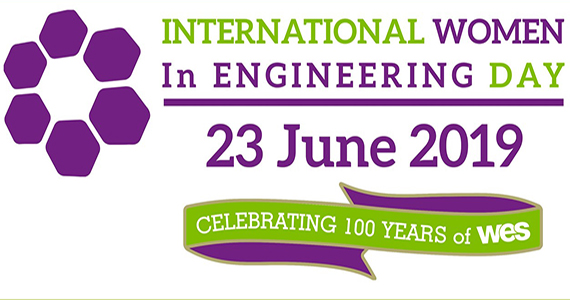
To celebrate International Women in Engineering Day on 23rd June we asked some of IfM’s brilliant females to tell us about their work and what inspires them about engineering.
Dr Maria Cristina Rodriguez Rivero
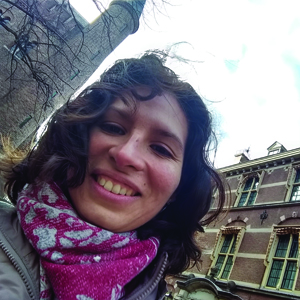 I am working on the fluid mechanics of small scale systems, mostly on digital printing techniques such as piezoelectric inkjet. I study drop formation and flight and the airflows happening in industrial printing conditions to try and improve these techniques and make it possible to use them to print electronics, print on textile or on complex 3D shapes.
I am working on the fluid mechanics of small scale systems, mostly on digital printing techniques such as piezoelectric inkjet. I study drop formation and flight and the airflows happening in industrial printing conditions to try and improve these techniques and make it possible to use them to print electronics, print on textile or on complex 3D shapes.
I also collaborate in the organisation of events aiming to engage people in activities that help them in their personal and professional development which links to an engagement with science too. Thus I like to get involved in science outreach activities (I collaborate in a science podcast and do research outreach within the University) and I also organise innovation and policy programmes. Something that I really enjoy about engineering is building and exploring connections with plenty of other fields since "engineering" devices and methodologies are needed in everything, from radiotelescopes to tiny sensors in your phone or the collection of data for a better management of the healthcare system!
Lucia Corsini
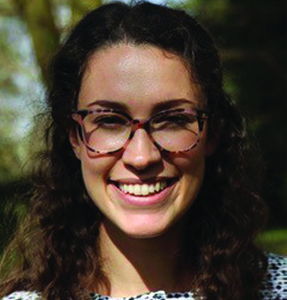 I decided to study engineering because I wanted to make things to help people. Now I am a PhD student in Design Management, researching how digital fabrication (e.g. 3D printing) can help to solve humanitarian and development problems. During my PhD I have studied how designers can use these technologies to create sustainable healthcare solutions.
I decided to study engineering because I wanted to make things to help people. Now I am a PhD student in Design Management, researching how digital fabrication (e.g. 3D printing) can help to solve humanitarian and development problems. During my PhD I have studied how designers can use these technologies to create sustainable healthcare solutions.
Some of my favourite experiences so far include:
• Working with a rural coastal community in Kenya to upcycle waste plastic into building materials.
• Visiting makerspaces in Greece to learn how they are helping refugee innovation.
• Working at Simprints (a Cambridge tech start up) to design a product to provide accurate patient identification for healthcare providers in developing countries.
• Travelling to Nepal, India and Kenya and seeing first-hand how digital fabrication is transforming healthcare.
Dr Niamh Fox
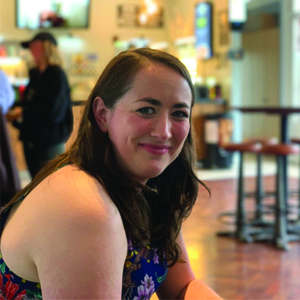 Manufacturing processes exert mechanical force on the materials being processed, in the form of shear forces. These shear forces can bring about degradation of the material. My research focuses on how the materials properties of polymeric materials are affected by shear forces induced during manufacturing processes. This is extremely useful when trying to protect sensitive novel materials during manufacturing. On the other hand these shear forces may also be used to promote chemical reactions to bring about positive changes in materials properties rather than degradation.
Manufacturing processes exert mechanical force on the materials being processed, in the form of shear forces. These shear forces can bring about degradation of the material. My research focuses on how the materials properties of polymeric materials are affected by shear forces induced during manufacturing processes. This is extremely useful when trying to protect sensitive novel materials during manufacturing. On the other hand these shear forces may also be used to promote chemical reactions to bring about positive changes in materials properties rather than degradation.
I began my research in the area of materials chemistry specifically examining the optical properties of polymeric materials. I was drawn to the engineering department as it gave me the opportunity to explore the really practical application of these materials. I love the idea of having something relevant to the real world by the end of the project.
Thayla Zomer
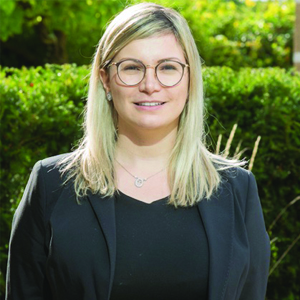 My research is focused on the use of digital technologies to transform the way that buildings are designed, built and maintained. I am investigating how construction projects implement building information modelling (BIM) to create a digital repository containing valuable information about all components of a building that can be used over its whole life cycle. Digital technologies offer many opportunities to increase productivity in the construction sector. Construction is a great contributor to many countries’ GDP, and as engineers, we should explore how new technologies can drive innovation in an industry that is essential to the global economy.
My research is focused on the use of digital technologies to transform the way that buildings are designed, built and maintained. I am investigating how construction projects implement building information modelling (BIM) to create a digital repository containing valuable information about all components of a building that can be used over its whole life cycle. Digital technologies offer many opportunities to increase productivity in the construction sector. Construction is a great contributor to many countries’ GDP, and as engineers, we should explore how new technologies can drive innovation in an industry that is essential to the global economy.
Since I was a kid, I was always trying to find alternative solutions to the problems I encountered. When I realised that, as an engineer, I could spend the rest of my life solving different sorts of problems, I was sure that was my calling. Engineering literally means making things happen. It is the practical application of knowledge from multiple disciplines to solve problems. And every time you solve a problem, you learn something new. An engineering career is a work in progress; it is something you have to continuously develop through experience. It offers non-stop and ever-changing challenges, and that is absolutely fascinating.
Everywhere you look you will see examples of engineering having a positive effect on everyday life. One of the best things about being an engineer is that your projects benefit society. And there is nothing more fulfilling than doing something that will impact positively people’s lives.
Dr Letizia Mortara
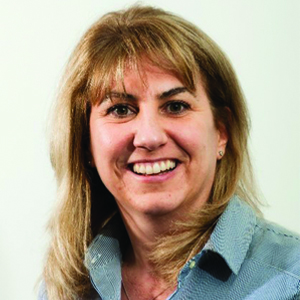 I am a University Lecturer and work in the field of Management of Technologies and Innovation. My research interests focus on open innovation, technology intelligence and the valuation of emerging technologies (especially additive and digital manufacturing).
I am a University Lecturer and work in the field of Management of Technologies and Innovation. My research interests focus on open innovation, technology intelligence and the valuation of emerging technologies (especially additive and digital manufacturing).
I gained my first degree in Industrial Chemistry at the University of Bologna in Italy. After working as a process/product manager in the chemical industry, I obtained my PhD at Cranfield University.
Helen Francis
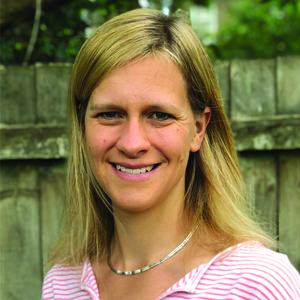 I always knew I wanted to do something to do with maths or science, but it was only when I did some work experience at BT when I was 16 that I realised engineering was the career for me. I enjoyed being at the cutting edge of technology, which at that time was one of the first broadband technologies. Twenty years on those early technologies are now obsolete, but I was hooked and following my degree in the Department of Engineering here in Cambridge I worked as an electronic engineer on a range of technologies from engine control units for mass market hybrid cars, to some of the earliest bluetooth headsets. After a number of years working as an engineer I moved into strategic marketing but still stayed close to technology - defining the next generations of products and working closely with customers around the world. The most exciting time in my career was working for a chip manufacturer when capacitive touchscreens were first being adopted. In the space of a year the touchscreen controller chip we were working on was designed into the majority of the touch-enabled handsets on the market. It was brilliant to walk into Carphone Warehouse and know that something I had contributed to was in nearly all the phones on the shelves!
I always knew I wanted to do something to do with maths or science, but it was only when I did some work experience at BT when I was 16 that I realised engineering was the career for me. I enjoyed being at the cutting edge of technology, which at that time was one of the first broadband technologies. Twenty years on those early technologies are now obsolete, but I was hooked and following my degree in the Department of Engineering here in Cambridge I worked as an electronic engineer on a range of technologies from engine control units for mass market hybrid cars, to some of the earliest bluetooth headsets. After a number of years working as an engineer I moved into strategic marketing but still stayed close to technology - defining the next generations of products and working closely with customers around the world. The most exciting time in my career was working for a chip manufacturer when capacitive touchscreens were first being adopted. In the space of a year the touchscreen controller chip we were working on was designed into the majority of the touch-enabled handsets on the market. It was brilliant to walk into Carphone Warehouse and know that something I had contributed to was in nearly all the phones on the shelves!
My role now is probably the most varied of my career, working as a Knowledge Transfer Facilitator helping academics to engage with industry and maximise the impact of their research - I'm involved in everything from writing grant proposals to facilitating collaborations with industry and helping with commercialisation. Most recently I have been working to establish collaborations in Agri-tech where there are huge opportunities for technology to to help us secure a safe and sustainable food supply. I really enjoy working closely with the brilliant academics and researchers in the IfM and the Department of Engineering as a whole, where I am fortunate to still be involved at the forefront of engineering innovation.
Dr Nicky Athanassopoulou
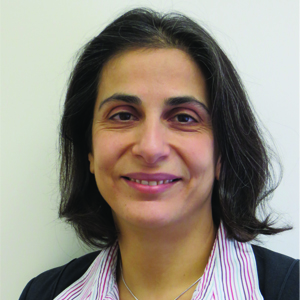 I work on the dissemination area of Engineering at the IfM, a very applied field where the impact to a company’s performance and individual learning can be realised quickly. I develop custom-designed services and training to support the strategy and innovation activities of companies of all sizes. At the same time, I work closely with the academic team of IfM and to develop, co-author and deliver tools and methodologies in technology and innovation management.
I work on the dissemination area of Engineering at the IfM, a very applied field where the impact to a company’s performance and individual learning can be realised quickly. I develop custom-designed services and training to support the strategy and innovation activities of companies of all sizes. At the same time, I work closely with the academic team of IfM and to develop, co-author and deliver tools and methodologies in technology and innovation management.
My role requires me to be able to understand how complex systems operate, and to create structured solutions to tackle difficult challenges. This has provided intense learning for me and makes my job satisfying, stimulating and challenging. The diversity of issues I came across, coupled with the different countries and cultures I work with keeps me constantly inspired, humble and curious.
Dr Doroteya Vladimirova
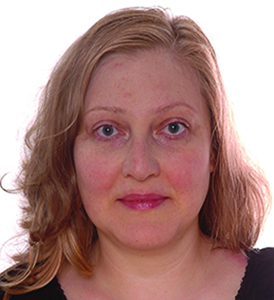 I am a Senior Research Associate and Director of the Regenerative Business Models Research Programme at the Centre for Industrial Sustainability, and a Fellow of the Cambridge Institute for Sustainability Leadership. The focus of my studies is on how industry can take on the most pressing global challenges relating to climate crisis, finite natural resources, protecting ecosystems, enhancing livelihoods and reducing poverty, to turn them into new opportunities. I enjoy multi-disciplinary research and my work is at the intersection of sustainable value innovation, sustainable business models and circular economy.
I am a Senior Research Associate and Director of the Regenerative Business Models Research Programme at the Centre for Industrial Sustainability, and a Fellow of the Cambridge Institute for Sustainability Leadership. The focus of my studies is on how industry can take on the most pressing global challenges relating to climate crisis, finite natural resources, protecting ecosystems, enhancing livelihoods and reducing poverty, to turn them into new opportunities. I enjoy multi-disciplinary research and my work is at the intersection of sustainable value innovation, sustainable business models and circular economy.
It’s important to me to translate academic research into practice. I develop evidence-based tools and methods to help innovative start-ups and large established companies go through strategic shifts that lead to the creation of new business models for a sustainable future.
I love teaching students of all ages and giving them tools to take radical responsibility for the well-being of their communities and the natural environment. I am a proponent of self-agency, especially among women, and I’m most inspired by my students.
Cassi Henderson
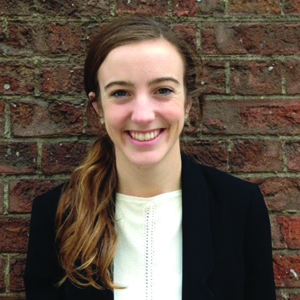 My research currently focuses on the design and development of robust systems for affordable point-of-care medical testing. To me, engineering is exciting because of its potential for big impact on global challenges. My engineering training enables me to use my creativity to design new solutions to challenges in global health.
My research currently focuses on the design and development of robust systems for affordable point-of-care medical testing. To me, engineering is exciting because of its potential for big impact on global challenges. My engineering training enables me to use my creativity to design new solutions to challenges in global health.
Clare Farrukh
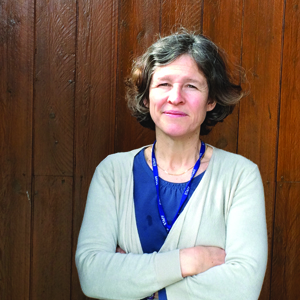 I am a researcher in the area of Technology Management. For me this involves bringing together ideas from academia and industry to form practical workshops and guidelines to help companies link technology into business thinking more effectively. One example of this development of practical tools for supporting technology management in industry has included a Fast-Start process for Product-Technology Roadmapping. I enjoy working with the wide range of engineers and researchers of other disciplines at the IfM and interacting with industry through collaborative research projects and the STIM Consortium.
I am a researcher in the area of Technology Management. For me this involves bringing together ideas from academia and industry to form practical workshops and guidelines to help companies link technology into business thinking more effectively. One example of this development of practical tools for supporting technology management in industry has included a Fast-Start process for Product-Technology Roadmapping. I enjoy working with the wide range of engineers and researchers of other disciplines at the IfM and interacting with industry through collaborative research projects and the STIM Consortium.
When thinking about what to study and what job to do, I wanted to keep my options open. I decided that Chemical Engineers worked in the widest number of industries in a very large variety of roles, from environment protection to the production of chocolate! So I studied Chemical Engineering at Nottingham University and I am a Chartered Engineer. Before joining the University of Cambridge I worked as a process engineer in a chemical plant and on a wide range of technical business improvement projects, including new product introduction, in composites manufacturing. This always involved working closely with a wide range of people across the company on a broad spectrum of technology related issues and gave me an ongoing interest in......technology management!
Dr Shima Barakat
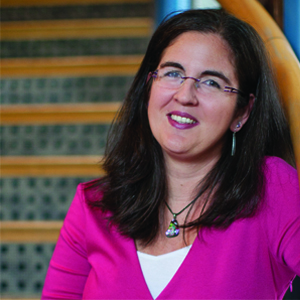 I lead a number of entrepreneurship education and venture creation programmes out of IfM, working with colleagues in CIS and CTM, that aim specifically at redefining successful business models and creating new ventures that drive change in the food sector towards more sustainable and transparent practices.
I lead a number of entrepreneurship education and venture creation programmes out of IfM, working with colleagues in CIS and CTM, that aim specifically at redefining successful business models and creating new ventures that drive change in the food sector towards more sustainable and transparent practices.
I am a construction engineer, trained to postgraduate level, and also have an MBA and a PhD in Management focused on Strategy and the Natural Environmental. I began my career working for the consortium that built the channel tunnel, who at that time were constructing the Cairo Metro. I have a passion for creating, and I decided I wanted to be an engineer at 13. Initially I wanted to design cars but quickly discovered I was fascinated by infrastructure projects. During my time on site I observed both the environmentally harmful practices and the potential that businesses can deliver by doing good. This led me to my research and current work with high impact industries, innovation and entrepreneurship to find and implement innovative solutions to our key global challenges as well as how educators can support the shaping and realization of ventures that deliver these solutions.
I am one of the founders and the Managing Director of Value in Enterprise, the responsible business consultancy company. I have also been among the founders of several organisations that aim at engaging communities in their own development in Egypt (Nahdet El Mahrousa and Egyptian Junior Business Association) and the US (Global Communities Initiative, with a subsidiary in South Africa) and one of the Board of Trustees of the Institute of Small Business and Entrepreneurship in the UK. Most recently I co-founded the Impact Women’s Network to raise the visibility of enterprising women and enabling the creation of greater impact through leveraging the power of the collective.
I’ve been at the University of Cambridge for almost 12 years and was the Head of Entrepreneurial Learning Programmes at the Entrepreneurship Centre of the Judge Business School until 2017. I am now the Chair of the Women’s Staff Network, sit on the Gender Equality Steering Group and the University of Cambridge board representative on the EIT Food NW CLC Company. In parallel to my core work around entrepreneurship for sustainability, my work also explores and supports the diversity of leadership, impact and success that women bring to entrepreneurial endeavour.”
Dr Curie Park
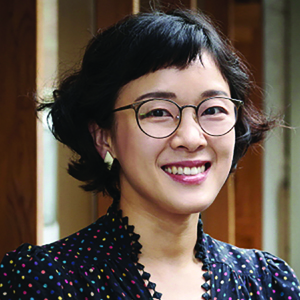 My research is on the circular innovation process for waste. Bringing different disciplines from engineering, science, design, business and management, we study how to create synergetic momentums, and generate creative solutions to turn waste into high value product or service. So far, we worked on plastic waste in the ocean, textile waste from clothing factories, and the list of possible waste is endless!
My research is on the circular innovation process for waste. Bringing different disciplines from engineering, science, design, business and management, we study how to create synergetic momentums, and generate creative solutions to turn waste into high value product or service. So far, we worked on plastic waste in the ocean, textile waste from clothing factories, and the list of possible waste is endless!
As a designer by training, I come from a bit of a different background. But working in engineering allows me disparate approaches to see and solve problems. Essentially it's having the best of the both worlds of creativity and systematic thinking.
Susannah Evans
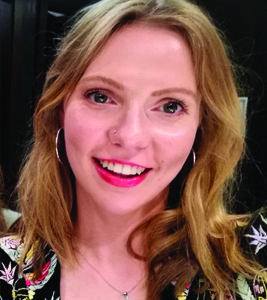 My research aims to understand the impact fluid-based manufacturing processes have on the structure and function of protein solutions and gels for applications within the pharmaceutical industry. Through a greater understanding, technologies such as inkjet printing can be used to miniaturise reactions and change from batch to continuous production which will help to increase drug discovery productivity.
My research aims to understand the impact fluid-based manufacturing processes have on the structure and function of protein solutions and gels for applications within the pharmaceutical industry. Through a greater understanding, technologies such as inkjet printing can be used to miniaturise reactions and change from batch to continuous production which will help to increase drug discovery productivity.
I was originally drawn to engineering through my love of maths, physics and chemistry and my indecision at 18 years old to choose between them. In a research setting, engineering is truly unique in bringing together experts from many fields to achieve a common goal. Having access to the insight and perspective of chemists, biologists, physicists and engineers on any given day makes research in engineering a rich and rewarding experience.
Serena Flammini
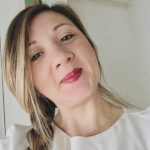 I am a researcher in the Centre for Technology Management, specialising in bringing new products to market. My research focuses on developing strategies and managerial approaches to enable the exploitation of new technologies (such as digital manufacturing) in the industrial environment. More specifically, I have been looking at collaboration dynamics and business model innovation issues related to these topics.
I am a researcher in the Centre for Technology Management, specialising in bringing new products to market. My research focuses on developing strategies and managerial approaches to enable the exploitation of new technologies (such as digital manufacturing) in the industrial environment. More specifically, I have been looking at collaboration dynamics and business model innovation issues related to these topics.
My work sits at the at the interface of management and engineering. Engineering has been incredibly helpful in bringing a systematic approach to address strategic problems that companies constantly face when commercialising new technologies.
Alexandra Brintup
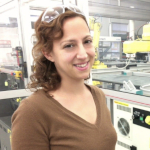 I am a University Lecturer in digital manufacturing, straddling the boundaries of Computer Science and Engineering. My research focuses on data analytics and autonomous agents in manufacturing and supply chains. I am in love with AI, and firmly believe it will revolutionise the way we make things in near future.
I am a University Lecturer in digital manufacturing, straddling the boundaries of Computer Science and Engineering. My research focuses on data analytics and autonomous agents in manufacturing and supply chains. I am in love with AI, and firmly believe it will revolutionise the way we make things in near future.
Engineering today is multidisciplinary and diverse, and as creative and ambitious as ever - characteristics necessary to address some of the most challenging problems our society faces today. Proud to be an engineer!









